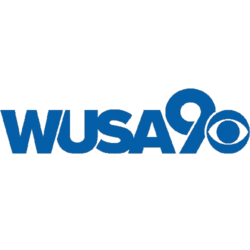Letter of support for Maryland state management of MD-295
The following letter was submitted to key members of the Maryland Congressional Delegation:
October 22, 2018
Dear Members of the Maryland Congressional Delegation:
I write today to express my strong support for the transfer of the federal portion of the Baltimore-Washington Parkway (MD-295) from the U.S. Department of the Interior (DOI), National Park Service to the State of Maryland. This transfer will allow the State to increase safety by upgrading the existing highway and to build and operate new express toll lanes, which will provide commuters with improved, expanded travel options between Baltimore City and Washington, DC.
The project will transform MD-295 – an unsafe and heavily congested highway – and will improve safety and commute time for the 165,000 people who depend on this thoroughfare every day and the millions of annual visitors to the Washington, D.C. region. The project also will improve the flow of traffic to critical Federal facilities, including but not limited to Fort George G. Meade, the National Security Agency and NASA’s Goddard Space Flight Center.
According to a 2015 report from the National Park Service, no capacity improvements have been made to MD-295 since its construction. This report identified a number of issues with the roadway, including overcapacity operating conditions, roadway features inconsistent with industry transportation safety standards, poor dissemination of information, difficulty with traffic safety enforcement, and limited driver situational awareness. An average of 6 fatalities and 547 crashes per year have occurred on MD-295 since 2006.
Congestion in Maryland has limited economic growth and the quality of life for Maryland citizens for far too long. The net result is that Maryland now has the second longest commuting times in the nation, and the DC region is the most congested region in the nation based on annual delay and congestion cost per auto-commuter. The statewide cost of congestion based on auto delay, truck delay, and wasted fuel and increased emissions was a staggering $2.11 billion in 2016, and is getting worse. This $2.11 billion cost is an increase of approximately $59 million over 2015 levels. More than 98% of the weekday congestion cost was incurred in the Baltimore/Washington region. The proposed plan will benefit the entire regional network by freeing up space on the existing highways and reducing commuter traffic on local roads.
We urge you to move forward with this important initiative that will greatly benefit our regional economy, improve quality of life for millions of Marylanders by affording a quicker and safer commute, and reduce transportation costs. If you have any questions or would further like to discuss our commitment to this project, please do not hesitate to contact us.
Sincerely,
Jack McDougle
President and CEO
Become a member today
We need your voice at the table to make Greater Washington a place where everyone can succeed



















